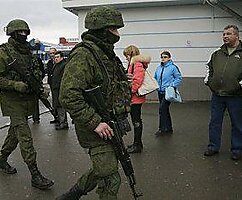Valentin Voyno-Yasenetsky: the brain, the organ of attention to life
 Bashny.Net
Bashny.Net
Amazing and brand-new judgments about the brain, the idol of intellectualists expressed by Bergson. He believes that the difference between the spinal cord, reflex responsive to received impulses, and the brain — only in complexity, not in the nature of the functions. In the brain only registers the perception came from outside, and selects the appropriate method of response. "The brain, says Bergson, is not that other, as a sort of Central telephone exchange: its role is limited to issuing a message or to clarify it." He adds nothing to what it receives. All the senses send to it the nerve fibres; in this is placed a motor system, and it represents the center in which a peripheral irritation shall enter into intercourse with this or that motor mechanism.

Already his structure of the brain proves that its function is the transformation of another irritation in a well-chosen reaction. Afferent nerve fibers, producing sensory irritation, end in the cells of the sensory areas of the cerebral cortex, and they are connected to other fibres with the cells of the motor area, which is transmitted irritation. While countless such connections the brain has the ability to endlessly modify a reaction that responds to external stimulation, and acts as a kind of switch.
Nervous system, especially the brain, not the device clean presentation and knowledge and just tools, designed to action.
"The brain is not the organ of thought, of feelings, of consciousness, but it is what attracts the minds, feelings and thoughts to real life, forcing them to listen to the real needs and makes them capable of useful action." The brain is actually the organ of attention to life, prinorovilsya to reality (the Soul and the body. You and life. 1921 20 Dec.).
Amazingly, but these mind-boggling thoughts of the great metaphysics coincide almost perfectly with the new doctrine of higher nervous activity created by our ingenious physiologist Ivan Petrovich Pavlov. Even more: we may say that Pavlov shortly before Henri Bergson pure philosophical thinking had anticipated the nature of the physiological teaching of Pavlov, built experimentally by the method of studying conditioned reflexes in the brain.
To substantiate this position I must give a few extracts from the book Pavlov, "Twenty years of experience objective study of the higher nervous activity of animals", but first need to explain what conditional reflexes that Pavlov called analyzers. Each animal has many permanent congenital reflexes which Pavlov called unconditional. For example, the animal immediately rushes to the food that you will see pulls his leg in irritation to her, the snail retracts into its shell when you tap it, the newborn child makes sucking movements when touching the mother's breast. But along with these unconditioned reflexes in higher animals, namely in dogs, in which Pavlov experimented also possible to artificially develop new reflexes, which he calls conditional (you can also call them temporary or acquired). For example, if for a short time before giving food, dog will be in for a series of experiments to obtain the same conditional irritation in the form of sound with a fixed pitch, a light signal or scratching of the skin, soon is a relative irritation will act in the same way as the sight and smell of meat (unconditioned stimulus): when the conditional signal, the dog immediately starts the flow of saliva and normal at the sight of food motor excitation. The signal led to the formation of a new, temporary, conditional reflex.
How are these reflexes? The irritation of the conventional signal light perceiving cells of the retina (optic eye), cells of the organ of Corti, which receive the sound, factorovich Taurus and of end devices sensitive nerves of the skin that perceive tactile and painful sensations, these sensations are transmitted by sensory nerve fibers in those areas of the cerebral cortex, nerve cells which are designed to accommodate only those stimuli (optic nerve is located in the occipital part of the hemispheres, sound in the temporal, etc.) the Nerve cells of the cortex, perceiving irritation, analyze it and, accordingly, the results of the analysis transfer momentum to the underlying centers of the brain and spinal cord to the appropriate Executive actions (effects): the motor, secretory, vasomotor, etc. underlying These Executive centers are called effector. Analyzer Pavlov calls the entire system consisting of specific receptor cells in the sense organ that starts from the nerve fibers sensitive nerve, continuation of fibers of the white matter and their endings — nerve cells in the sensory region of the cortex of the hemispheres. Such analyzers in the brain of countless. Among them, except those which have a beginning in our five senses, there are so many other, carrying the irritation from all the organs of our body and signaling to the cortex the cerebral hemispheres of everything that happens inside the body. On the brain, therefore, is assigned the daunting task to analyze all these irritations and respond to the reactions of effector centers.
Now we will understand the following statement from the book Pavlova:
"From the point of view of conditioned reflexes hemispheres are presented as a range of analyzers with the task of decomposing the complexity of the external and internal world of the individual elements and moments and then tie it in with the many activities of the body."
"Staying on the ground the exact factors, we can say that hemispheres is a collection of parsers, which decompose the complexity of the external and internal world of the individual elements and moments and then bound so analyzed the phenomenon with varying activity of the body".
"Large hemisphere on the animal organism, which is specialized on how to continually realize all the more perfect the equilibrium of the organism with the external environment — an organ for the appropriate and immediate response to a variety of combinations and fluctuations of external phenomena, and to some extent a special body for the continuous further development of the animal organism".
"Motor area of the hemispheres has a receptor area, or main area, etc., and the propulsion effect in case of irritation of the cortex essentially reflexive nature. This establishes the unity of the entire cortical hemispheres. The bark, therefore, is only the receptor apparatus, an analyzing and synthesizing diverse coming irritation that only by heading down the connective fibers reach the effector apparatus."
"In the front lobes no mechanisms, which would be Supreme in relation to all hemispheres. About some General mechanisms located in the front lobes may not be considered. No particularly important devices, which would have established the highest perfection of nervous activity, there is obviously no".
I. Pavlov, like Bergson, believes that the difference between the brain and spinal cord only in complexity, not in the nature of the functions. He and his school consider the possible decoding of the higher nervous activity of the dog, what kind of experiments e conditioned reflexes, be attributed to the physiology of the human brain.
If the dog can only get the secondary conditional reflexes with primary, monkey their number is already above, and a man is undoubtedly possible for a great layering some reflexes acquired on other, pre-existing, and it continually ongoing and increasingly complex in the course of human life by the formation of new brain connections are given the opportunity to improve mental activity and increase in consciousness. But still, this complicated brain activity and reflexes of the brain, and the physiology of the brain, we think, should take the place of the psychological doctrine of Association.
But isn't that the same thing was said of Bergson: "the Brain is nothing more than a kind of Central telephone exchange: its role is limited to issuing a message or to clarify it. He will add nothing to what he received".
Of great importance are studies of Pavlov and his staff, the physiological values of the frontal lobes of the cerebral hemispheres. These shares hitherto all was considered an essential part of the brain, centers of higher mental activity, on thinking for the most part, even the "seat of the soul." But Pavlov did not find in them "no particularly important devices, which would have established the highest perfection of nervous activity", and the bark of these advanced lobes of the cerebral hemispheres, as the rest of the crust, and represent the touch area. The whole cortex of the hemispheres, this perfect part of the brain consists of a myriad of parsers, analyzers and analyzers. And if the crust wasn't room for any center of emotions, the more it is impossible to find in the grey nodes of the brain stem, which is partly known to have a purely physiological functions. The cerebral cortex does not analyze the feelings and sensations.
These studies Pavlov correspond to the observations of surgeons over many wounded with abscesses of the frontal lobes of the brain. They, as a rule, not accompanied by any significant changes in the psyche or a disorder of higher cognitive functions. From my own practice will give only two striking observations.
The young wounded I revealed a huge abscess (about 50 kubiš. see pus), which, of course, destroyed the entire left frontal lobe, and absolutely no defects of the psyche after the operation, I have not seen.
The same I can say about the other patients operated on for a huge cyst meninges. With the wide opening of the skull, I was surprised to see that almost the entire right half of it is empty, and all the right hemisphere of the brain is squeezed almost to the point of impossibility to distinguish.
If, therefore, the brain cannot be considered a sense organ and an exceptional on superior knowledge, it is in great measure confirms the teaching of Scripture about the heart as the organ of the senses in General, and especially the higher senses.
The Prelate Luka (Voyno-Yasenetsky) "Spirit, soul and body"
This material was prepared according to the book "evidence of the existence of life after death," published in the publishing house "New thought" (comp. Fomin A. V., Moscow, 2004)
published
P. S. And remember, just changing your mind — together we change the world! ©
Source: www.memoriam.ru/udivitelnye-rassuzhdeniya-o-mozge

Already his structure of the brain proves that its function is the transformation of another irritation in a well-chosen reaction. Afferent nerve fibers, producing sensory irritation, end in the cells of the sensory areas of the cerebral cortex, and they are connected to other fibres with the cells of the motor area, which is transmitted irritation. While countless such connections the brain has the ability to endlessly modify a reaction that responds to external stimulation, and acts as a kind of switch.
Nervous system, especially the brain, not the device clean presentation and knowledge and just tools, designed to action.
"The brain is not the organ of thought, of feelings, of consciousness, but it is what attracts the minds, feelings and thoughts to real life, forcing them to listen to the real needs and makes them capable of useful action." The brain is actually the organ of attention to life, prinorovilsya to reality (the Soul and the body. You and life. 1921 20 Dec.).
Amazingly, but these mind-boggling thoughts of the great metaphysics coincide almost perfectly with the new doctrine of higher nervous activity created by our ingenious physiologist Ivan Petrovich Pavlov. Even more: we may say that Pavlov shortly before Henri Bergson pure philosophical thinking had anticipated the nature of the physiological teaching of Pavlov, built experimentally by the method of studying conditioned reflexes in the brain.
To substantiate this position I must give a few extracts from the book Pavlov, "Twenty years of experience objective study of the higher nervous activity of animals", but first need to explain what conditional reflexes that Pavlov called analyzers. Each animal has many permanent congenital reflexes which Pavlov called unconditional. For example, the animal immediately rushes to the food that you will see pulls his leg in irritation to her, the snail retracts into its shell when you tap it, the newborn child makes sucking movements when touching the mother's breast. But along with these unconditioned reflexes in higher animals, namely in dogs, in which Pavlov experimented also possible to artificially develop new reflexes, which he calls conditional (you can also call them temporary or acquired). For example, if for a short time before giving food, dog will be in for a series of experiments to obtain the same conditional irritation in the form of sound with a fixed pitch, a light signal or scratching of the skin, soon is a relative irritation will act in the same way as the sight and smell of meat (unconditioned stimulus): when the conditional signal, the dog immediately starts the flow of saliva and normal at the sight of food motor excitation. The signal led to the formation of a new, temporary, conditional reflex.
How are these reflexes? The irritation of the conventional signal light perceiving cells of the retina (optic eye), cells of the organ of Corti, which receive the sound, factorovich Taurus and of end devices sensitive nerves of the skin that perceive tactile and painful sensations, these sensations are transmitted by sensory nerve fibers in those areas of the cerebral cortex, nerve cells which are designed to accommodate only those stimuli (optic nerve is located in the occipital part of the hemispheres, sound in the temporal, etc.) the Nerve cells of the cortex, perceiving irritation, analyze it and, accordingly, the results of the analysis transfer momentum to the underlying centers of the brain and spinal cord to the appropriate Executive actions (effects): the motor, secretory, vasomotor, etc. underlying These Executive centers are called effector. Analyzer Pavlov calls the entire system consisting of specific receptor cells in the sense organ that starts from the nerve fibers sensitive nerve, continuation of fibers of the white matter and their endings — nerve cells in the sensory region of the cortex of the hemispheres. Such analyzers in the brain of countless. Among them, except those which have a beginning in our five senses, there are so many other, carrying the irritation from all the organs of our body and signaling to the cortex the cerebral hemispheres of everything that happens inside the body. On the brain, therefore, is assigned the daunting task to analyze all these irritations and respond to the reactions of effector centers.
Now we will understand the following statement from the book Pavlova:
"From the point of view of conditioned reflexes hemispheres are presented as a range of analyzers with the task of decomposing the complexity of the external and internal world of the individual elements and moments and then tie it in with the many activities of the body."
"Staying on the ground the exact factors, we can say that hemispheres is a collection of parsers, which decompose the complexity of the external and internal world of the individual elements and moments and then bound so analyzed the phenomenon with varying activity of the body".
"Large hemisphere on the animal organism, which is specialized on how to continually realize all the more perfect the equilibrium of the organism with the external environment — an organ for the appropriate and immediate response to a variety of combinations and fluctuations of external phenomena, and to some extent a special body for the continuous further development of the animal organism".
"Motor area of the hemispheres has a receptor area, or main area, etc., and the propulsion effect in case of irritation of the cortex essentially reflexive nature. This establishes the unity of the entire cortical hemispheres. The bark, therefore, is only the receptor apparatus, an analyzing and synthesizing diverse coming irritation that only by heading down the connective fibers reach the effector apparatus."
"In the front lobes no mechanisms, which would be Supreme in relation to all hemispheres. About some General mechanisms located in the front lobes may not be considered. No particularly important devices, which would have established the highest perfection of nervous activity, there is obviously no".
I. Pavlov, like Bergson, believes that the difference between the brain and spinal cord only in complexity, not in the nature of the functions. He and his school consider the possible decoding of the higher nervous activity of the dog, what kind of experiments e conditioned reflexes, be attributed to the physiology of the human brain.
If the dog can only get the secondary conditional reflexes with primary, monkey their number is already above, and a man is undoubtedly possible for a great layering some reflexes acquired on other, pre-existing, and it continually ongoing and increasingly complex in the course of human life by the formation of new brain connections are given the opportunity to improve mental activity and increase in consciousness. But still, this complicated brain activity and reflexes of the brain, and the physiology of the brain, we think, should take the place of the psychological doctrine of Association.
But isn't that the same thing was said of Bergson: "the Brain is nothing more than a kind of Central telephone exchange: its role is limited to issuing a message or to clarify it. He will add nothing to what he received".
Of great importance are studies of Pavlov and his staff, the physiological values of the frontal lobes of the cerebral hemispheres. These shares hitherto all was considered an essential part of the brain, centers of higher mental activity, on thinking for the most part, even the "seat of the soul." But Pavlov did not find in them "no particularly important devices, which would have established the highest perfection of nervous activity", and the bark of these advanced lobes of the cerebral hemispheres, as the rest of the crust, and represent the touch area. The whole cortex of the hemispheres, this perfect part of the brain consists of a myriad of parsers, analyzers and analyzers. And if the crust wasn't room for any center of emotions, the more it is impossible to find in the grey nodes of the brain stem, which is partly known to have a purely physiological functions. The cerebral cortex does not analyze the feelings and sensations.
These studies Pavlov correspond to the observations of surgeons over many wounded with abscesses of the frontal lobes of the brain. They, as a rule, not accompanied by any significant changes in the psyche or a disorder of higher cognitive functions. From my own practice will give only two striking observations.
The young wounded I revealed a huge abscess (about 50 kubiš. see pus), which, of course, destroyed the entire left frontal lobe, and absolutely no defects of the psyche after the operation, I have not seen.
The same I can say about the other patients operated on for a huge cyst meninges. With the wide opening of the skull, I was surprised to see that almost the entire right half of it is empty, and all the right hemisphere of the brain is squeezed almost to the point of impossibility to distinguish.
If, therefore, the brain cannot be considered a sense organ and an exceptional on superior knowledge, it is in great measure confirms the teaching of Scripture about the heart as the organ of the senses in General, and especially the higher senses.
The Prelate Luka (Voyno-Yasenetsky) "Spirit, soul and body"
This material was prepared according to the book "evidence of the existence of life after death," published in the publishing house "New thought" (comp. Fomin A. V., Moscow, 2004)
published
P. S. And remember, just changing your mind — together we change the world! ©
Source: www.memoriam.ru/udivitelnye-rassuzhdeniya-o-mozge
Tags
See also
How the Internet steals your soul
12 scientifically proven facts about how useful to be a bitch
We've been married 16 years, but I love her as the first day
When you change the world, and no one noticed
The best quotes
Human emotions. Interesting Facts
Facts about emotions and instincts

















